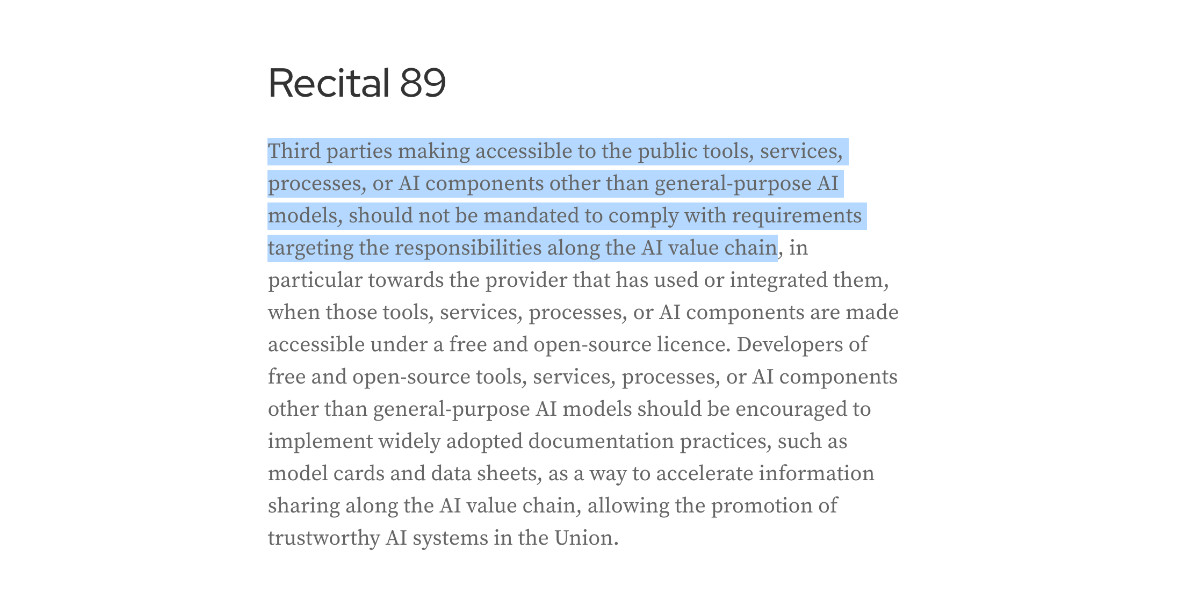Saturday, 19th April 2025
Gemma 3 QAT Models. Interesting release from Google, as a follow-up to Gemma 3 from last month:
To make Gemma 3 even more accessible, we are announcing new versions optimized with Quantization-Aware Training (QAT) that dramatically reduces memory requirements while maintaining high quality. This enables you to run powerful models like Gemma 3 27B locally on consumer-grade GPUs like the NVIDIA RTX 3090.
I wasn't previously aware of Quantization-Aware Training but it turns out to be quite an established pattern now, supported in both Tensorflow and PyTorch.
Google report model size drops from BF16 to int4 for the following models:
- Gemma 3 27B: 54GB to 14.1GB
- Gemma 3 12B: 24GB to 6.6GB
- Gemma 3 4B: 8GB to 2.6GB
- Gemma 3 1B: 2GB to 0.5GB
They partnered with Ollama, LM Studio, MLX (here's their collection) and llama.cpp for this release - I'd love to see more AI labs following their example.
The Ollama model version picker currently hides them behind "View all" option, so here are the direct links:
- gemma3:1b-it-qat - 1GB
- gemma3:4b-it-qat - 4GB
- gemma3:12b-it-qat - 8.9GB
- gemma3:27b-it-qat - 18GB
I fetched that largest model with:
ollama pull gemma3:27b-it-qat
And now I'm trying it out with llm-ollama:
llm -m gemma3:27b-it-qat "impress me with some physics"
I got a pretty great response!
Update: Having spent a while putting it through its paces via Open WebUI and Tailscale to access my laptop from my phone I think this may be my new favorite general-purpose local model. Ollama appears to use 22GB of RAM while the model is running, which leaves plenty on my 64GB machine for other applications.
I've also tried it via llm-mlx like this (downloading 16GB):
llm install llm-mlx
llm mlx download-model mlx-community/gemma-3-27b-it-qat-4bit
llm chat -m mlx-community/gemma-3-27b-it-qat-4bit
It feels a little faster with MLX and uses 15GB of memory according to Activity Monitor.
Claude Code: Best practices for agentic coding (via) Extensive new documentation from Anthropic on how to get the best results out of their Claude Code CLI coding agent tool, which includes this fascinating tip:
We recommend using the word "think" to trigger extended thinking mode, which gives Claude additional computation time to evaluate alternatives more thoroughly. These specific phrases are mapped directly to increasing levels of thinking budget in the system: "think" < "think hard" < "think harder" < "ultrathink." Each level allocates progressively more thinking budget for Claude to use.
Apparently ultrathink is a magic word!
I was curious if this was a feature of the Claude model itself or Claude Code in particular. Claude Code isn't open source but you can view the obfuscated JavaScript for it, and make it a tiny bit less obfuscated by running it through Prettier. With Claude's help I used this recipe:
mkdir -p /tmp/claude-code-examine
cd /tmp/claude-code-examine
npm init -y
npm install @anthropic-ai/claude-code
cd node_modules/@anthropic-ai/claude-code
npx prettier --write cli.js
Then used ripgrep to search for "ultrathink":
rg ultrathink -C 30
And found this chunk of code:
let B = W.message.content.toLowerCase(); if ( B.includes("think harder") || B.includes("think intensely") || B.includes("think longer") || B.includes("think really hard") || B.includes("think super hard") || B.includes("think very hard") || B.includes("ultrathink") ) return ( l1("tengu_thinking", { tokenCount: 31999, messageId: Z, provider: G }), 31999 ); if ( B.includes("think about it") || B.includes("think a lot") || B.includes("think deeply") || B.includes("think hard") || B.includes("think more") || B.includes("megathink") ) return ( l1("tengu_thinking", { tokenCount: 1e4, messageId: Z, provider: G }), 1e4 ); if (B.includes("think")) return ( l1("tengu_thinking", { tokenCount: 4000, messageId: Z, provider: G }), 4000 );
So yeah, it looks like "ultrathink" is a Claude Code feature - presumably that 31999 is a number that affects the token thinking budget, especially since "megathink" maps to 1e4 tokens (10,000) and just plain "think" maps to 4,000.
Maybe Meta’s Llama claims to be open source because of the EU AI act
I encountered a theory a while ago that one of the reasons Meta insist on using the term “open source” for their Llama models despite the Llama license not actually conforming to the terms of the Open Source Definition is that the EU’s AI act includes special rules for open source models without requiring OSI compliance.
[... 852 words]